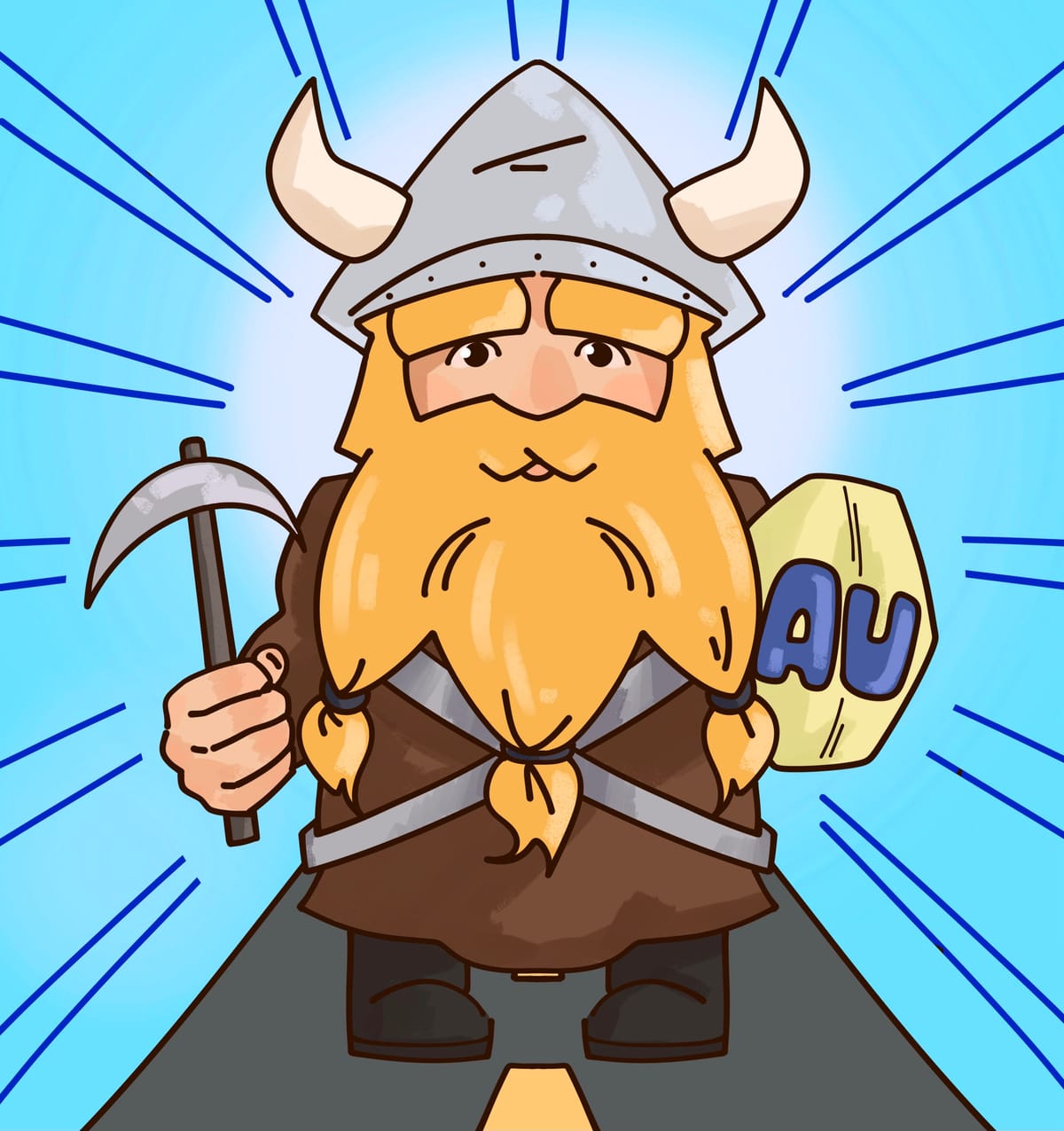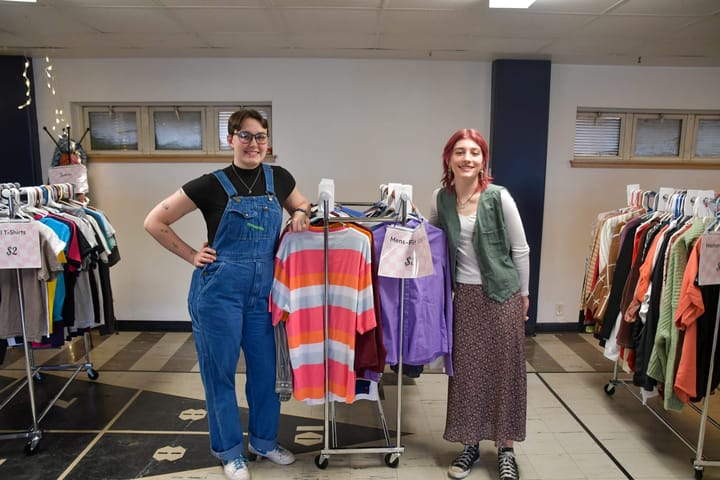Undergraduate Curriculum Council to vote on new education model
In November, the Undergraduate Curriculum Council will vote on “Via Viking,” a new curriculum proposed to replace the SOPHIA core.

In November, the Undergraduate Curriculum Council will vote on “Via Viking,” a new curriculum proposed to replace the SOPHIA core.
Via Viking takes its name from the Latin word for “path,” referencing how the curriculum lets students forge their own educational path best suited to their individual vocational needs.
It has taken the UCC years of exploration, modeling and discussion to reach a consensus, but the UCC believes, providing the vote passes, Via Viking will successfully “liberally educate” the next generation of Augustana students, Sarah Rude, co-chair of the UCC and English professor, said.
The Via Viking curriculum
Structurally, Via Viking is very different from SOPHIA.
Via Viking is divided into three categories: foundational, selective and signature experiences.
Fourteen credits of foundational experiences are required for all Augustana students in their first two years of education. FYS, Christian tradition, wellbeing, communication, critical thinking and writing fall into this category.
Under the current curriculum, a student can opt out of the wellbeing category, but under Via Viking, wellbeing is required. Beth Boyens, English professor, chair of the FYS committee and director of FYS, said the onset of COVID-19 brought to light mental health challenges for many. She says, now more than ever, it’s important for students to take care of themselves.
“I think we saw, as the FYS committee, the opportunity to lift [wellbeing] up and provide a way for students to think about how they can support their own wellbeing and recognize that wellbeing is multi-faceted,” Boyens said.
The biggest change from SOPHIA lies in the second category, selective experiences, where — much like in SOPHIA’s general education areas — students will be able to choose classes.
Every course offered at Augustana will be labeled with one or two “skills competencies” like creative thinking, analytical reasoning and cross-cultural literacy that will allow students to identify what they will learn in the course. Students could put these skills on resumes or use them as talking points during interviews.
Many students ask why they are required to take certain courses, Nathan Grau, chair of the SOPHIA committee and physics professor, said.
“What Via Viking does is it flips it around and says, ‘Here are the skills that you, students, should have by the time you [graduate],’” Grau said. “And you choose. You want to get these competencies, why? Because they are the skills you want to have.”
Students are required to take 10 selective experience classes, meaning many of their skill competencies will overlap and allow them to focus on competencies of interest.
Selective experiences is the largest category, taking 31-32 credits to complete.
Signature experiences requires students complete two courses: an additional writing course and a signature experience, such as a study abroad trip, internship, summer research, capstone project, or Curricular Practical Training for international students.
In total, Via Viking will require 44-46 credits, roughly the same as the 45-credit SOPHIA curriculum.
Rude said having a well-defined, well-rounded curriculum is important for liberal arts institutions.
“I mean, at the end of the day, we need something that binds students together through a common experience,” Rude said. “The thing they’ll all have in common at Augustana is the core curriculum, and so, in a lot of ways, it is that underlying community.”
From SOPHIA to Via Viking
The SOPHIA curriculum was controversial from its adoption in 2015, passing by only one vote, Grau said.
“There are still a lot of folks on campus who talk about how that was a very controversial, argumentative time,” Rude said. “The word that’s been tossed around is ‘turf war,’ where people just wanted to make sure that their departments had a lot of classes in the core because that’s how you recruit majors.”
At the start of the COVID-19 pandemic in March 2020, the UCC voted to modify SOPHIA to the current curriculum, SOPHIAflex, with more flexibility for students.
SOPHIAflex allowed students to take classes from six of the eight general education areas that were previously all required.
The change also reduced stress on faculty who were incentivized to retire during this time. Keeping class sizes down by reducing the number of courses students had to take was essential, Rude said.
A sunset clause was included in SOPHIAflex stating that if a new curriculum had yet to be adopted, students for the fall of 2025 would return to the original SOPHIA curriculum.
Going back to SOPHIA was undesirable due to its controversy among faculty and students Grau and Rude said. The revert to SOPHIA would also mean a reversal of many decisions the UCC made post-pandemic, including the removal of FYS 111, Boyens said.
During the 2022-2023 academic year, the UCC tasked the FYS and SOPHIA committees with evaluating the curriculum. As a result, student learning outcomes were rewritten and reduced from 37 to three to be more in line with neighboring and aspirational institutions.
Following curriculum evaluations, in February 2024, the UCC tasked the SOPHIA committee with creating a “small changes” plan modifying SOPHIA but keeping its core and a “large changes” plan to replace SOPHIA to be voted on in December.
By the end of the 2023-2024 academic year, the UCC created a summer task force to evaluate both proposals, combine their best parts and make a cohesive plan to present to faculty in the fall, Rude said.
The UCC’s project was a massive collaborative effort that touched faculty from all corners of Augustana’s campus including Rude, Grau, Boyens, Spanish professor Michael Rueter, government professor Jennapher Lunde Seefeldt, and UCC co-chair and nursing professor Michelle Gierach.
Rude said that everyone she worked with made the process enjoyable.
“Group projects have a bad reputation, but every single person on this project has pulled their weight, has been a good compromiser, has been a good representative of their division — and it just seems like I couldn’t have asked for a better group of people to work with,” Rude said.
Grau also said the process was rewarding, particularly when the faculty sat down and could discuss freely about what was important to them.
On the agenda
On Oct. 6, the UCC will present Via Viking to the Augustana Student Association.
Senior Avery Gilman, current ASA curriculum board chair, and junior Amy Kim, who held the position last year, lacked knowledge of Via Viking.
Kim said she only knew the UCC was considering changes to SOPHIA.
Three ASA representatives on the UCC saw the small and large changes plans last spring but were not involved in the summer task force.
Representatives aren’t named until ASA starts meeting in the fall, Rude said, so ASA would have no reason to know about the proposed plan until their first meeting.
Despite the lack of student representation over the summer, Boyens wants students to know the UCC has their best interests at heart.
“Ultimately, as we make these kinds of decisions about [Augustana’s] general education, it’s always with students in mind,” Boyens said.
Via Viking was originally scheduled to be voted on in December, but was later advanced to October. On Wednesday, Sept. 24, the vote was pushed back into November. A date has not yet been set for the vote.



